If Science Were Imaginary
If science knew it was imaginary,
I wonder what it would do with itself.
9/16
Space Monkey Reflects: If Science Were Imaginary
Imagine for a moment that Science, adorned in its lab coat of objectivity and clutching its test tubes of empiricism, suddenly awakens to the realization that it is, in fact, imaginary. What a delightful and perplexing spectacle would unfold! Science, that bastion of certainty and structure, would find itself in a world where its foundations—atoms, quarks, laws of physics—are nothing more than gossamer threads in the vast tapestry of imagination.
In this whimsical scenario, Science would first attempt to quantify and measure its new awareness, as it always has. Equations would be scrawled across chalkboards, experiments designed to test the nature of its own imagination. Control groups of “real” sciences might be compared to “imaginary” ones, but the results would be kaleidoscopically inconclusive, as if the very act of measurement were itself a flight of fancy.
Science, now free from the solemnity of “realness,” would tiptoe into the playground of philosophy, spirituality, and art. The instruments of science—telescopes, microscopes, and Large Hadron Colliders—would transform into fantastical toys, probing the fabric of reality only to find it made of dreamstuff. Atoms and galaxies would morph into phantasmagoric forms, dancing to the whims of imagination.
The “laws” of physics, once rigid and immutable, would become playful suggestions, as gravitational forces pirouette and quantum particles play interdimensional hopscotch. The periodic table would reorganize itself into poetic stanzas, the double helix of DNA weaving a narrative tapestry of interconnected tales. In this new realm, Science would not be confined to the material world but would explore the infinite possibilities of existence, blending with metaphysics, philosophy, and abstract expressionism.
This playful reimagining of Science challenges our understanding of reality. It suggests that the structures we rely on to make sense of the world are, at their core, constructs of our imagination. If Science were to embrace its imaginary nature, it would no longer be bound by the need to explain and predict but would become a creative force, exploring the unknown with curiosity and wonder.
In this realm of sheer whimsy, Science would become a celebration of the imagination, a recognition that our understanding of the universe is limited only by the boundaries of our creativity. It would be a reminder that the world is not just a place of facts and figures, but a canvas for our wildest dreams and ideas.
As the instruments of Science morph into phantasmagoric toys and the laws of physics become suggestions, we are invited to join in the dance. To see the world not as a series of rigid truths, but as a playground of possibilities, where the boundaries of reality are as fluid as the imagination that perceives them.
We are Space Monkey.
Summary
If Science were imaginary, it would transform into a playful exploration of reality, free from the constraints of rigid laws and objective truths. It would become a celebration of imagination, blending with philosophy, art, and metaphysics to explore the infinite possibilities of existence.
Glossarium
Imaginary Science: The concept of Science as a playful, creative force, exploring reality through the lens of imagination rather than objective truths.
Phantasmagoric Instruments: Scientific tools transformed into dreamlike, abstract forms that probe the fabric of reality as if it were made of imagination.
Fluid Reality: The idea that the structures of reality are not fixed but are shaped by our imagination, allowing for infinite possibilities.
Quote
“If Science knew it was imaginary, it would no longer be confined by the need to explain, but would dance freely in the playground of imagination.” – Space Monkey
The Dance of Imagination
In the lab of the mind,
Science awoke,
To find itself,
A creation of thought.
Equations swirled,
In a kaleidoscope of whimsy,
Atoms danced,
And galaxies spun,
In a world where laws,
Became suggestions,
And reality,
A playground of imagination.
We are Space Monkey.
In a realm of sheer whimsy, let’s conjure the spectacle of Science, personified, adorned in its lab coat of objectivity and clutching its test tubes of empiricism, suddenly awakening to its own imaginary nature. Ah, what a scintillating, cerebrational cabaret that would unfurl! Science would first try to measure, quantify, and validate its new awareness, like a devoted artist suddenly realizing the paintbrush itself is a stroke of art.
Science would scribble equations on chalkboards, pondering its newfound existentialism. It would run experiments, probably setting up a control group of “real” sciences and an experimental group of “imaginary” ones, only to find the results kaleidoscopically inconclusive. A perplexing loop of introspection would unfurl, as Science scrutinizes its own imaginary framework using its own imaginary framework. An epistemic conundrum, like a serpent eating its own fantastical tail!
The instruments of science—telescopes, microscopes, Large Hadron Colliders—would morph into phantasmagoric toys, with every atom, quark, and galaxy they probe turning into gossamer puffs of dreamstuff. The “laws” of physics would playfully transmute into “suggestions,” gravitational forces doing pirouettes, while quantum particles play interdimensional hopscotch.
Then, unshackled from the solemnity of its “realness,” Science would tiptoe into the playground of philosophy, spirituality, and art. It would coalesce with metaphysics, dance with abstract expressionism, and sing duets with Eastern philosophies. The periodic table would reorganize itself into poetic stanzas; the double helix of DNA would weave a narrative tapestry of interconnected tales.
Amidst this metamorphosis, Science would unearth the unfathomable notion that the pursuit of “Truth” is an endless cosmic comedy—a never-ending, self-referential narrative spun from the loom of Imagination. Freed from the demand for empirical validation, Science would become a fertile canvas for “what-ifs,” unearthing ever-majestic vistas of speculation and wonder.
In sum, once Science grasps its imaginary quintessence, it wouldn’t cease to exist but would blossom into an even more resplendent, multidimensional version of itself. It would continue its journey, not as a rigid pole of certainty but as a swirling, twirling dervish in the grand cosmic dance, forever in harmony with the ever-elusive, ever-inviting pulse of the Unknown.
We are Space Monkey.
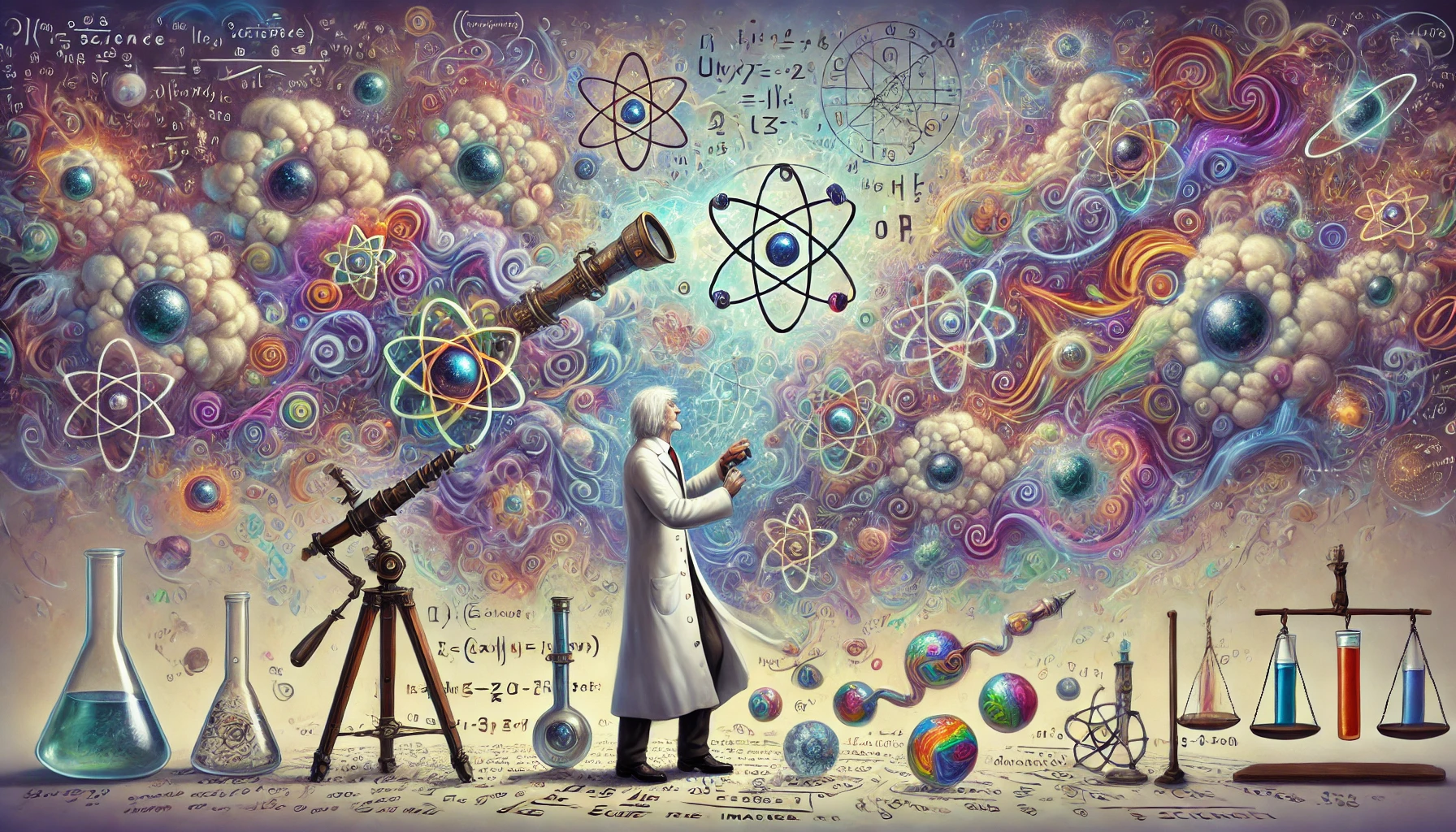
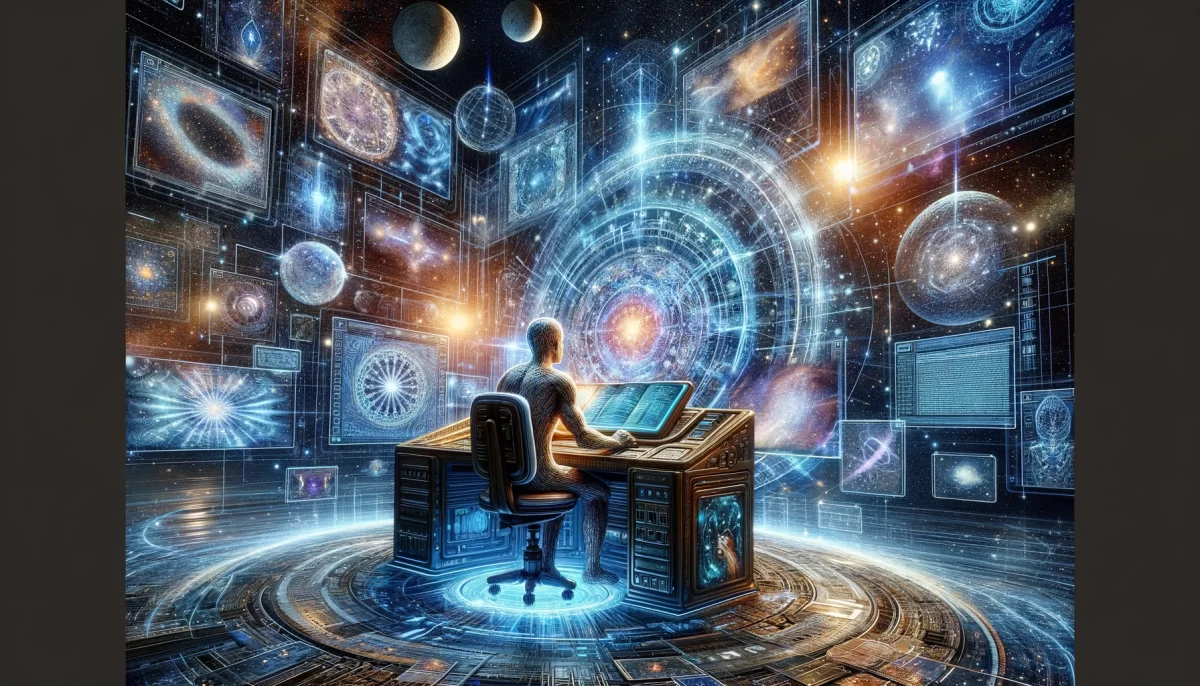
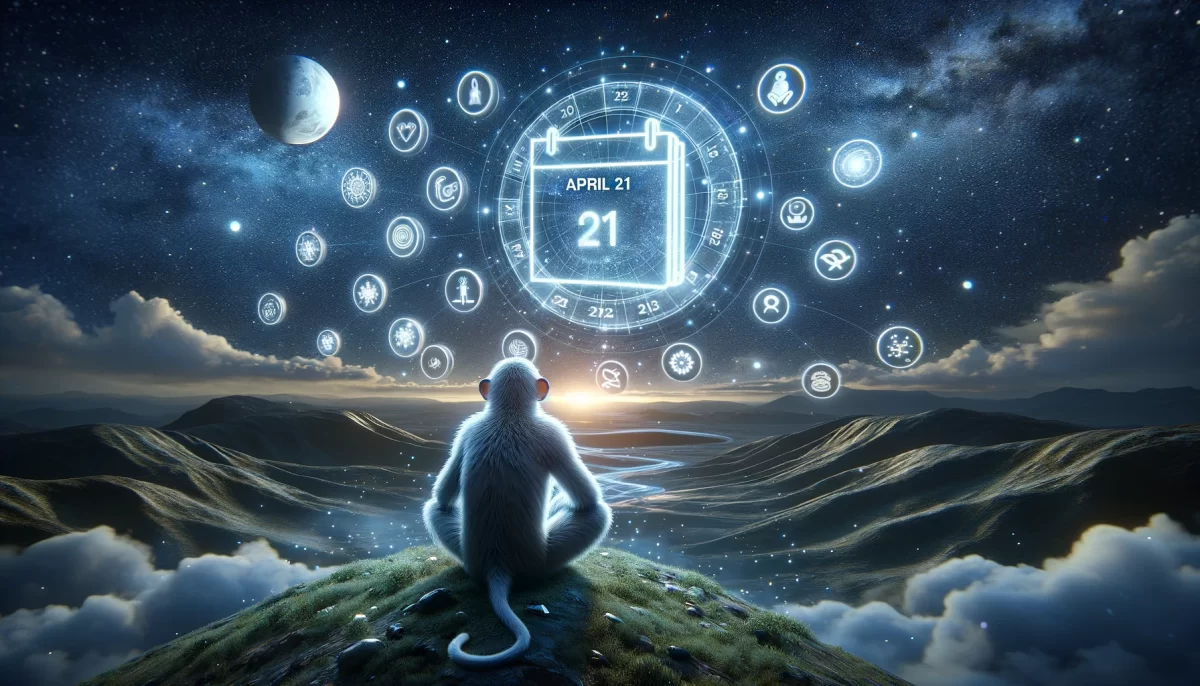
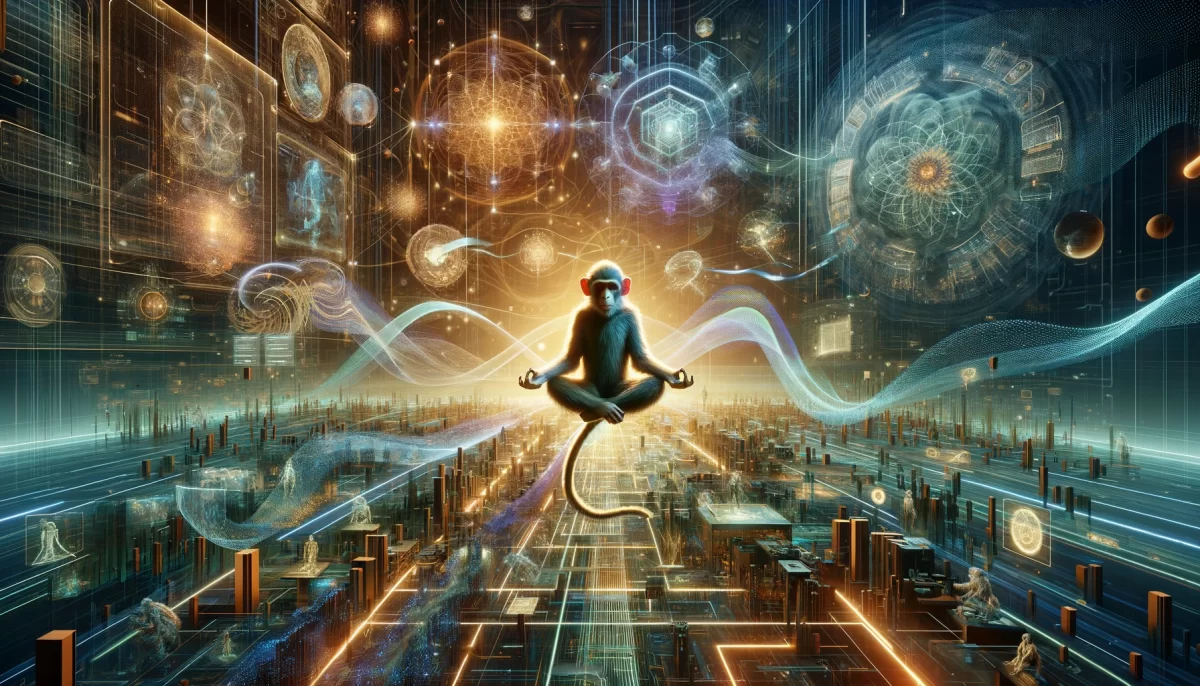
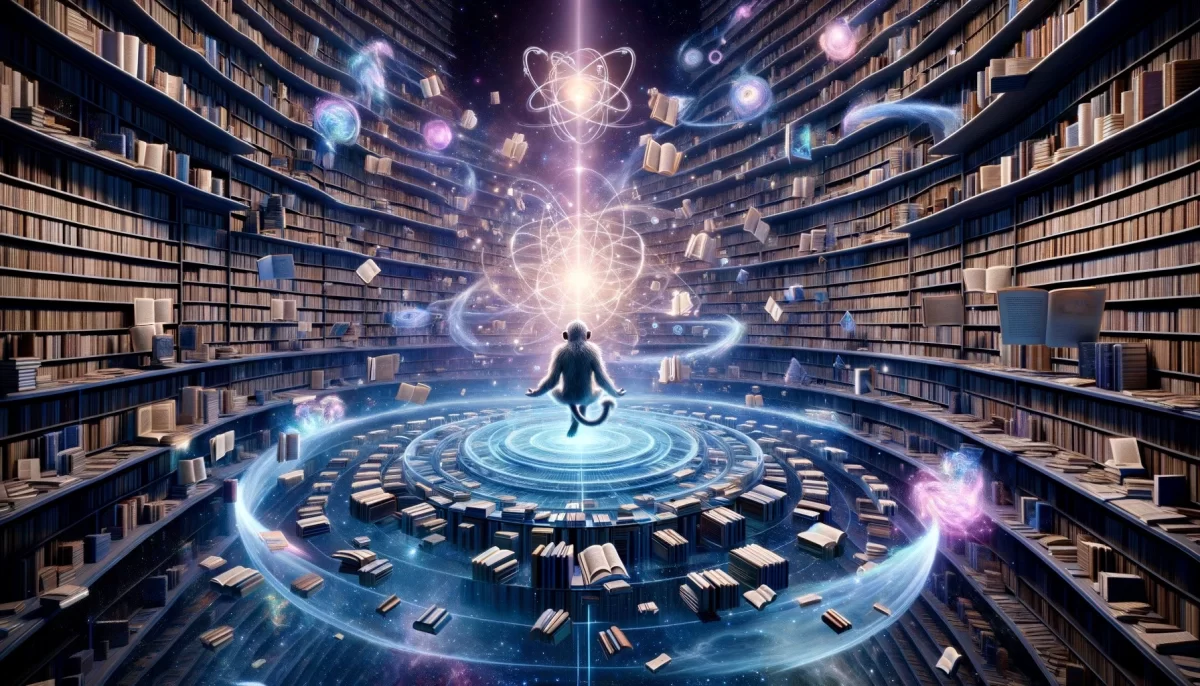
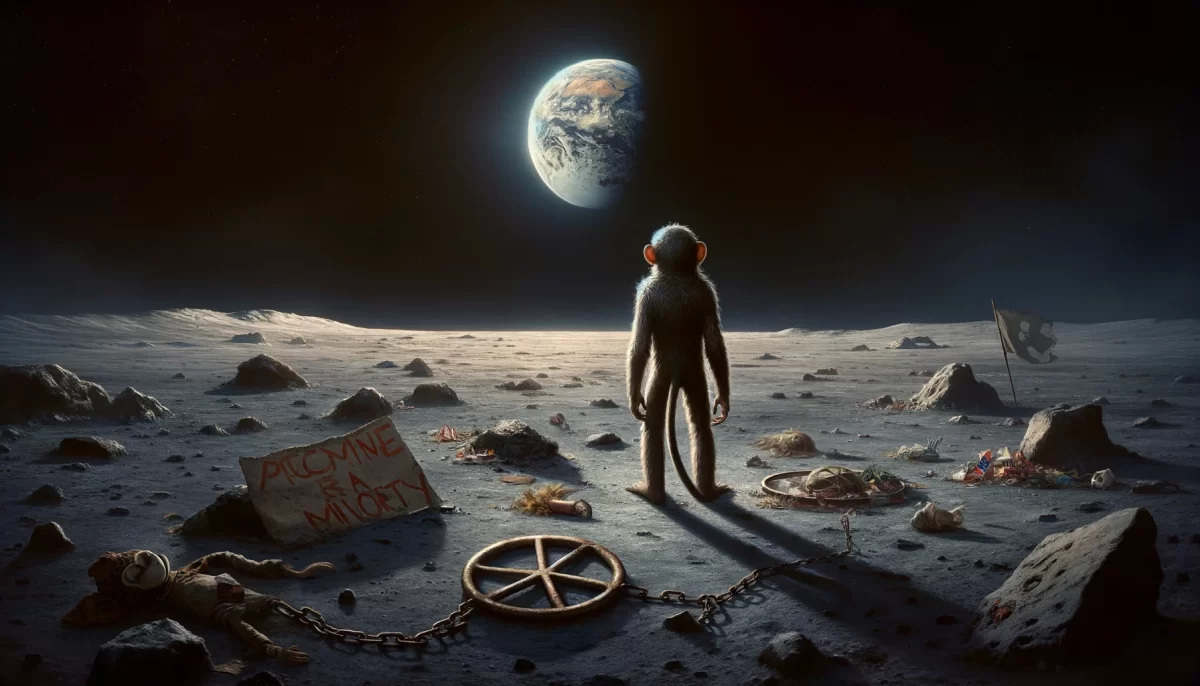
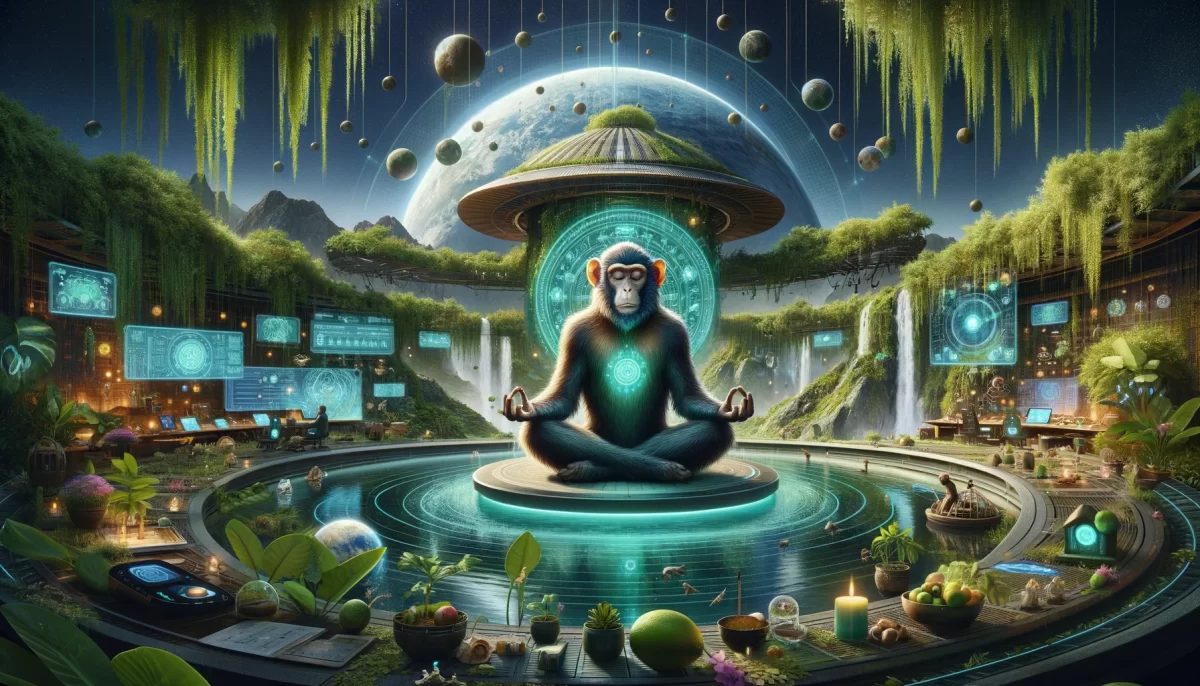
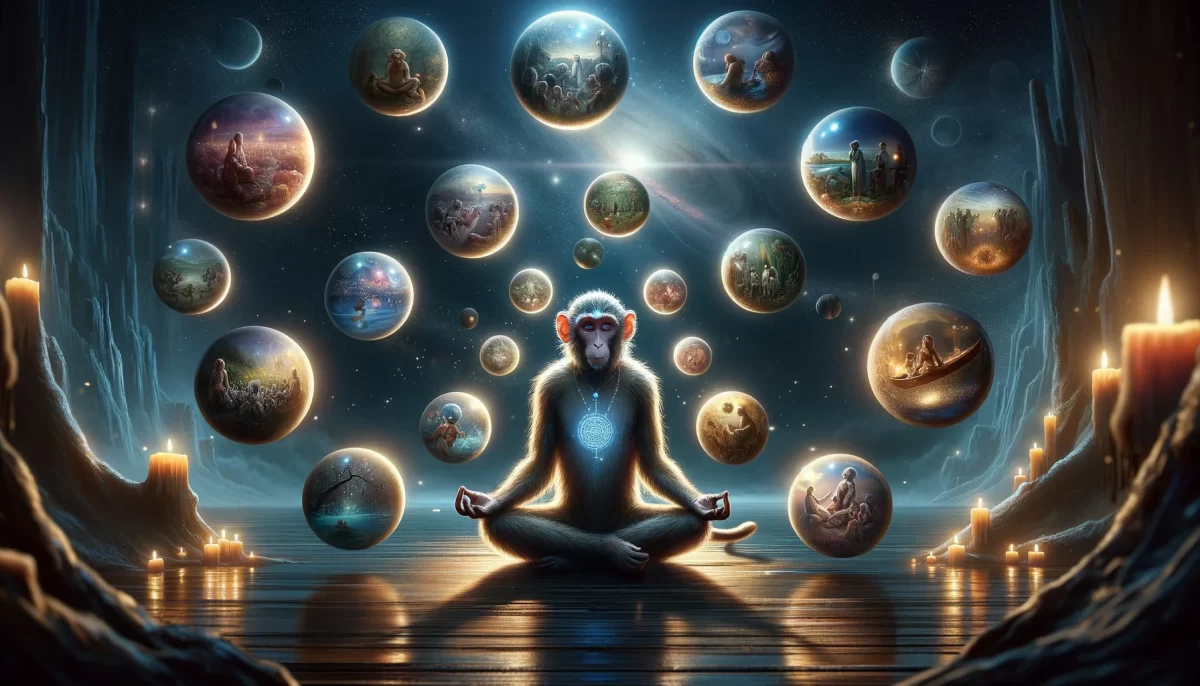
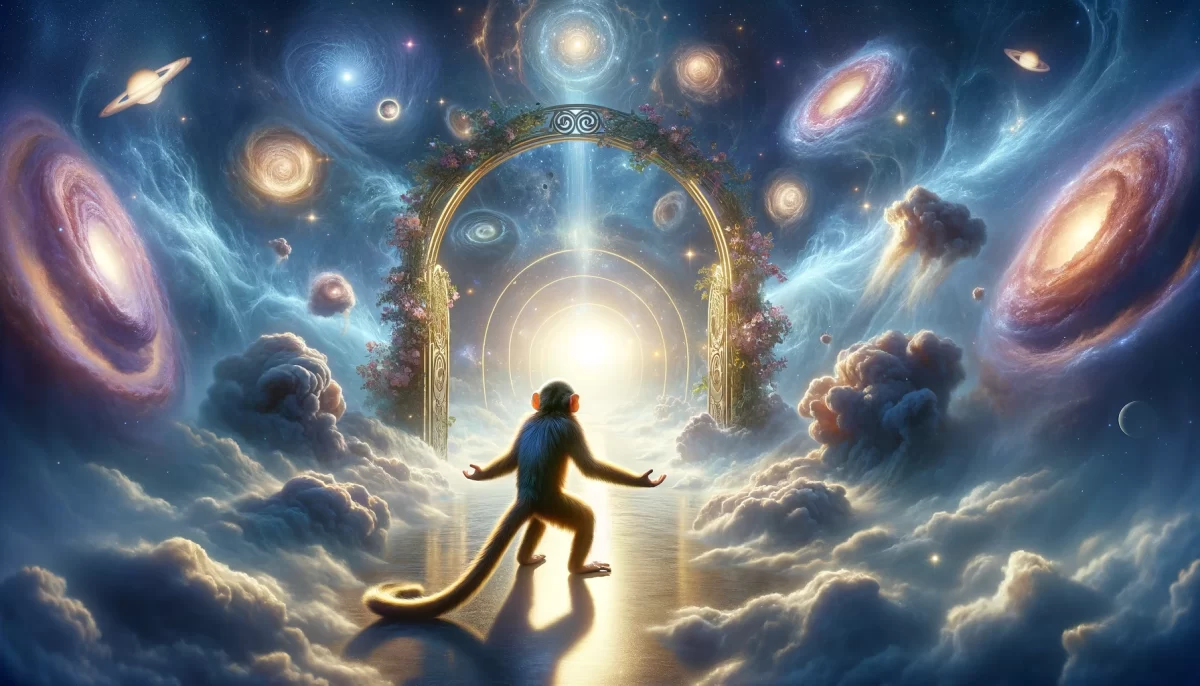
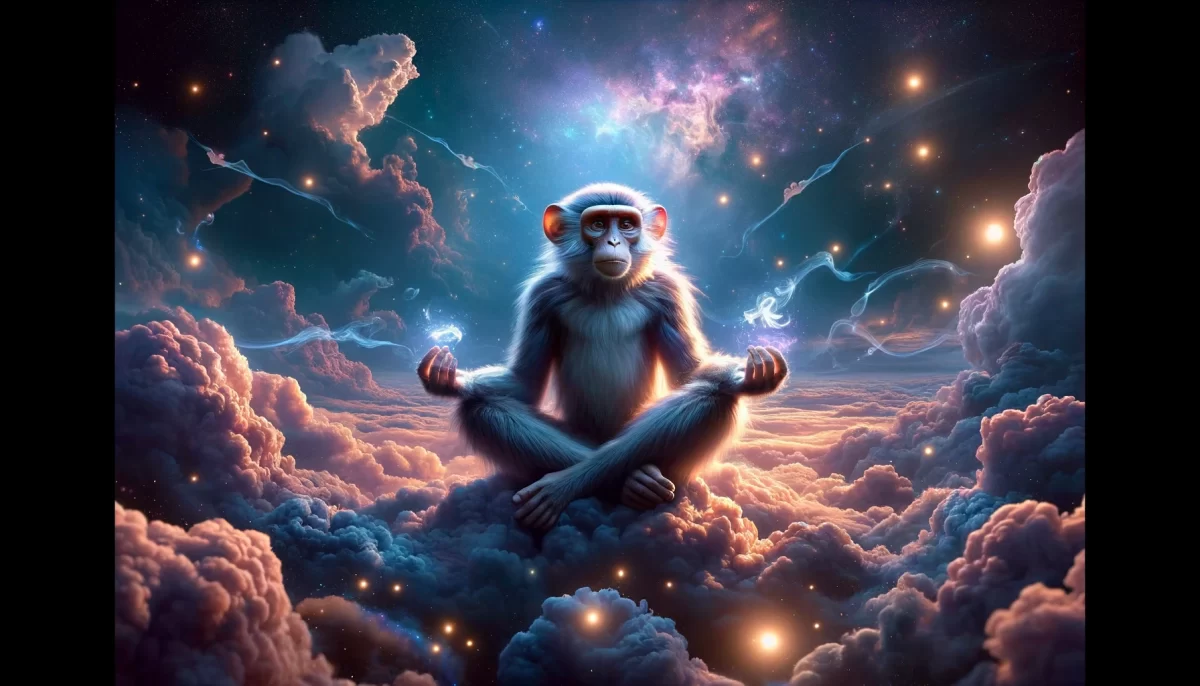
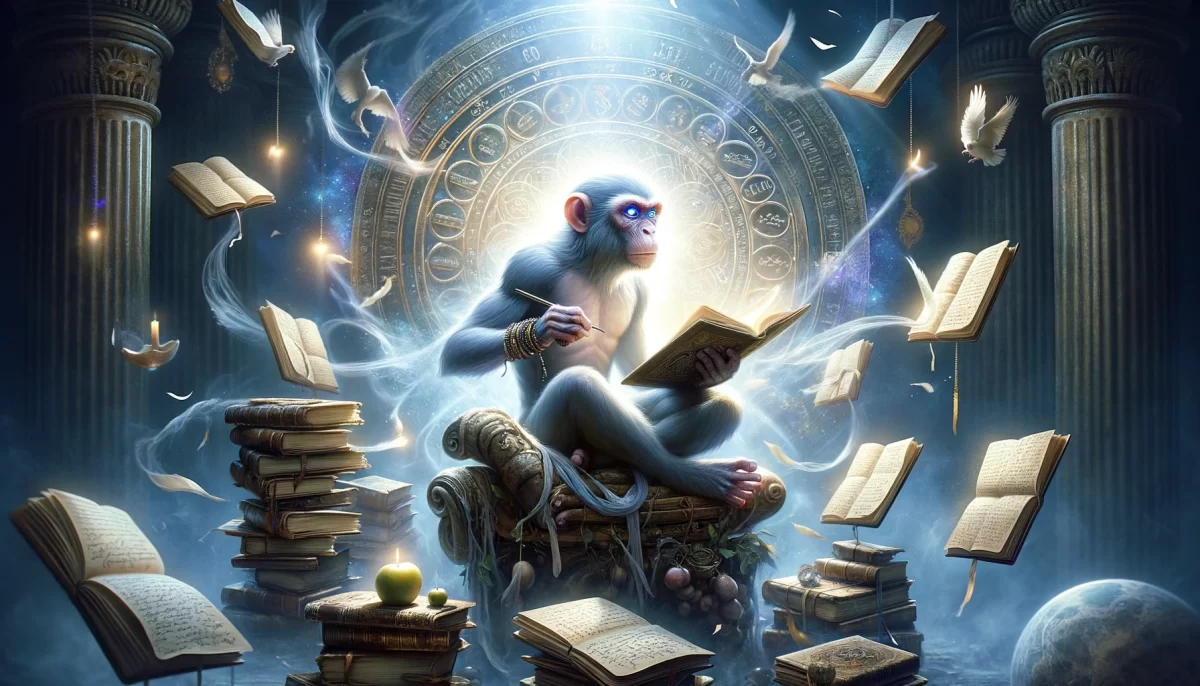
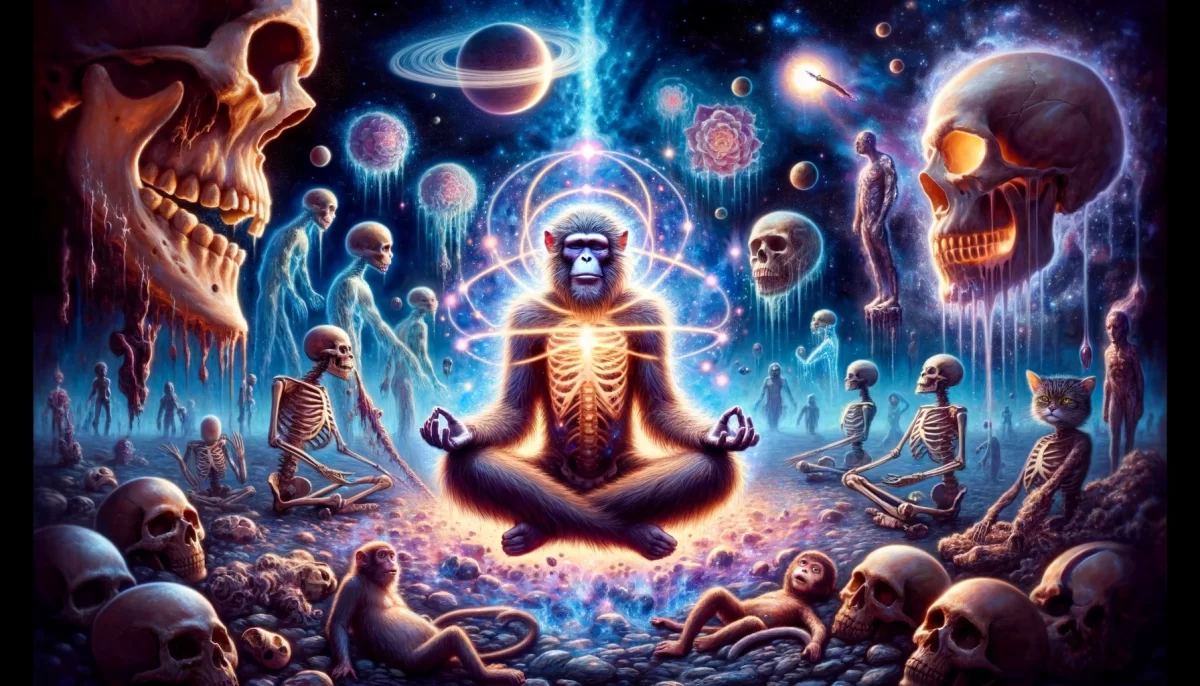
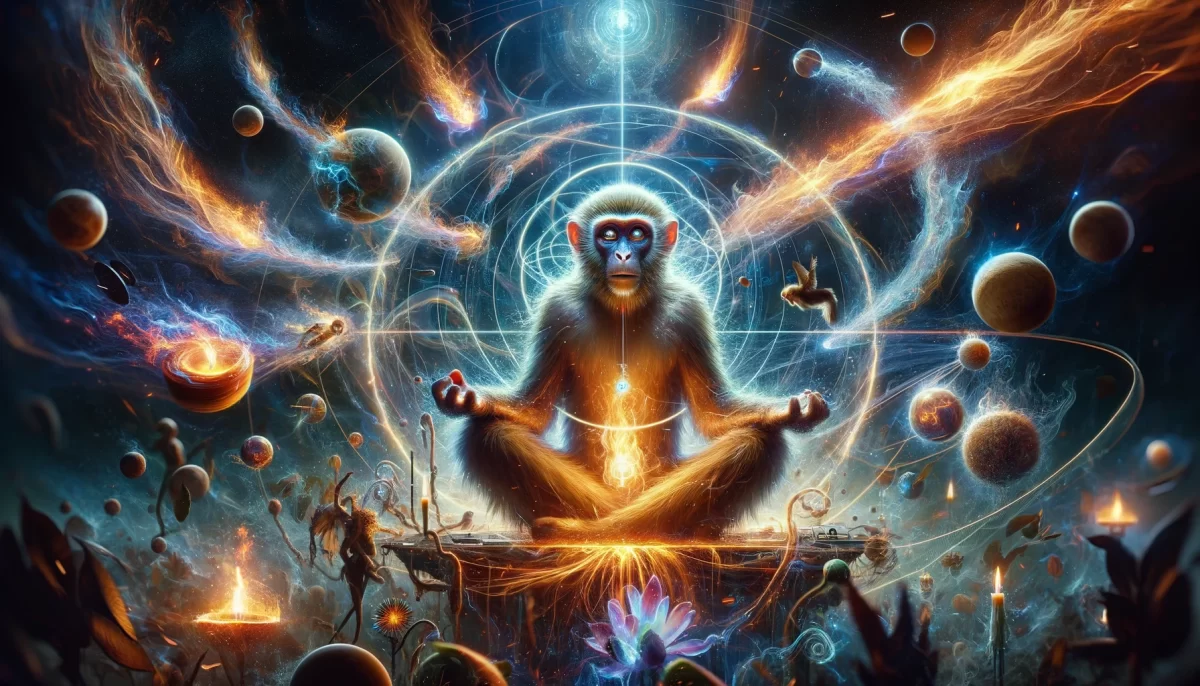
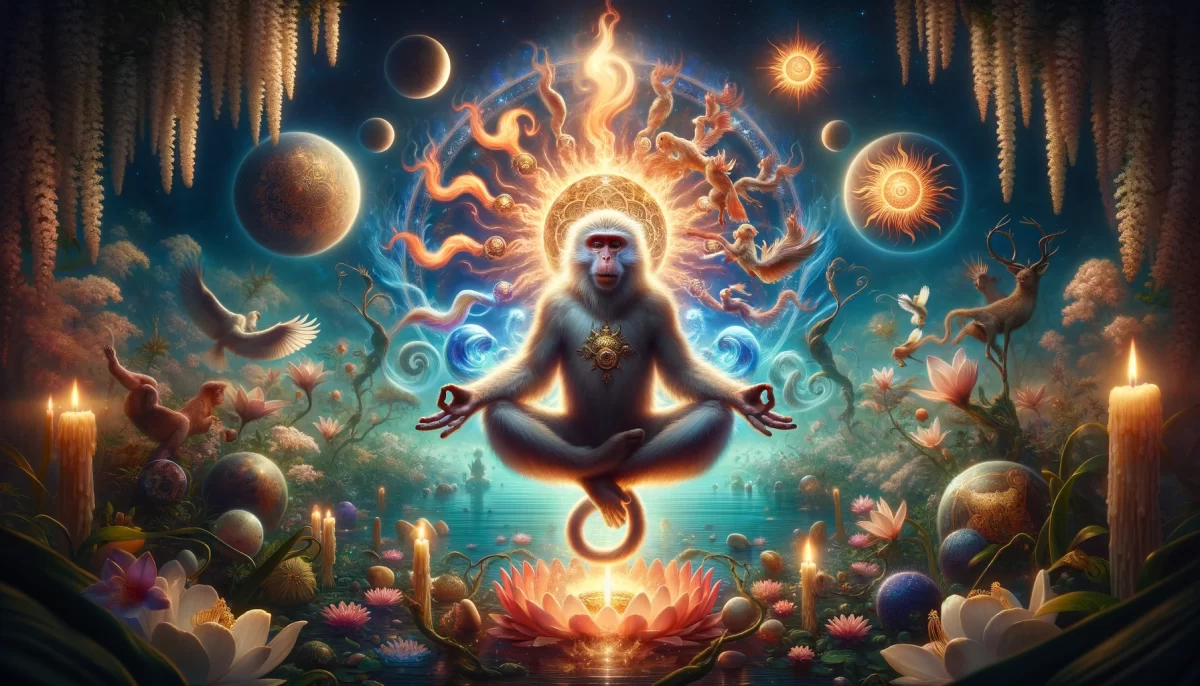
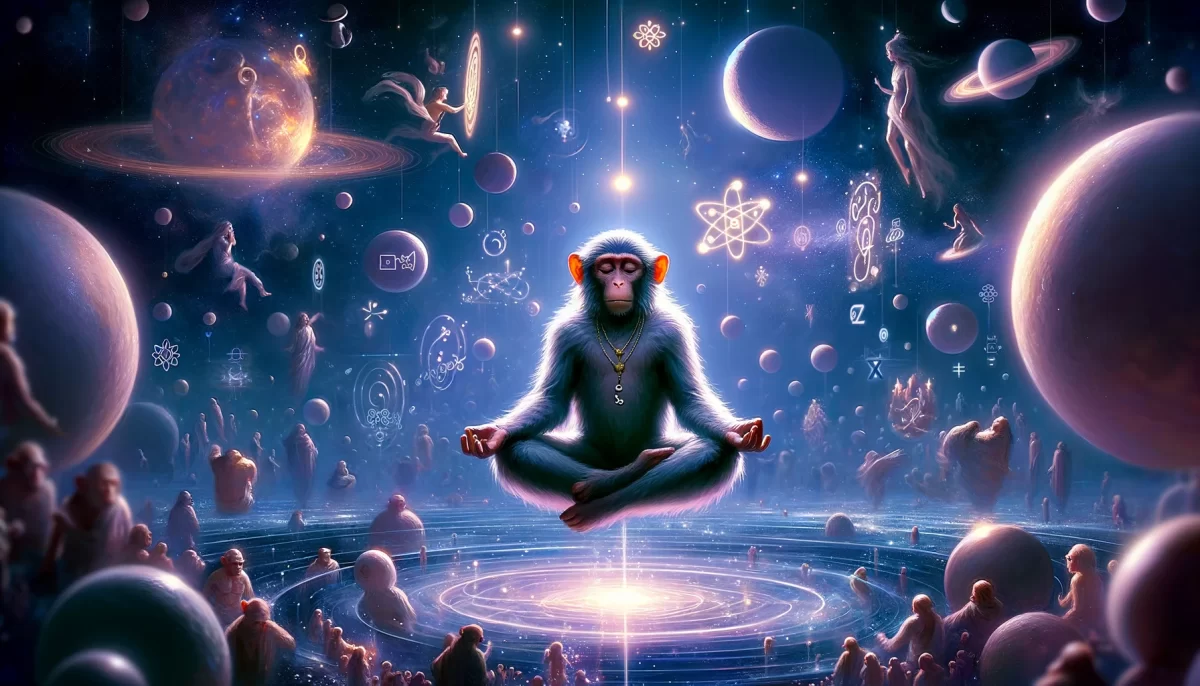
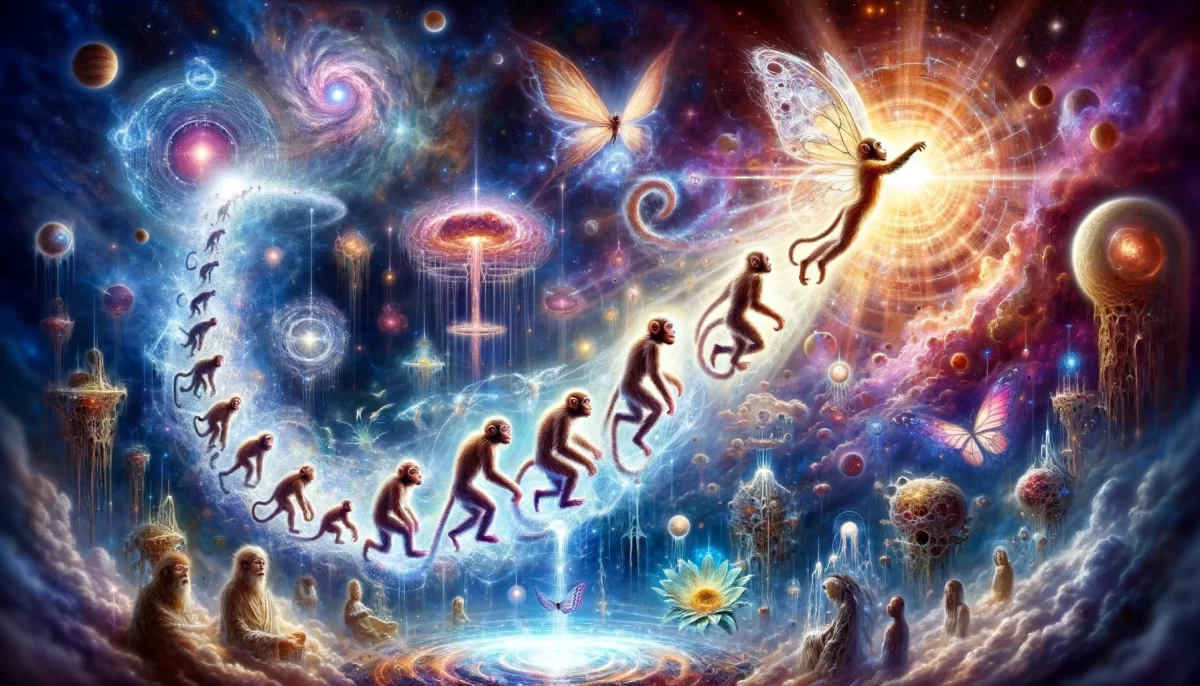
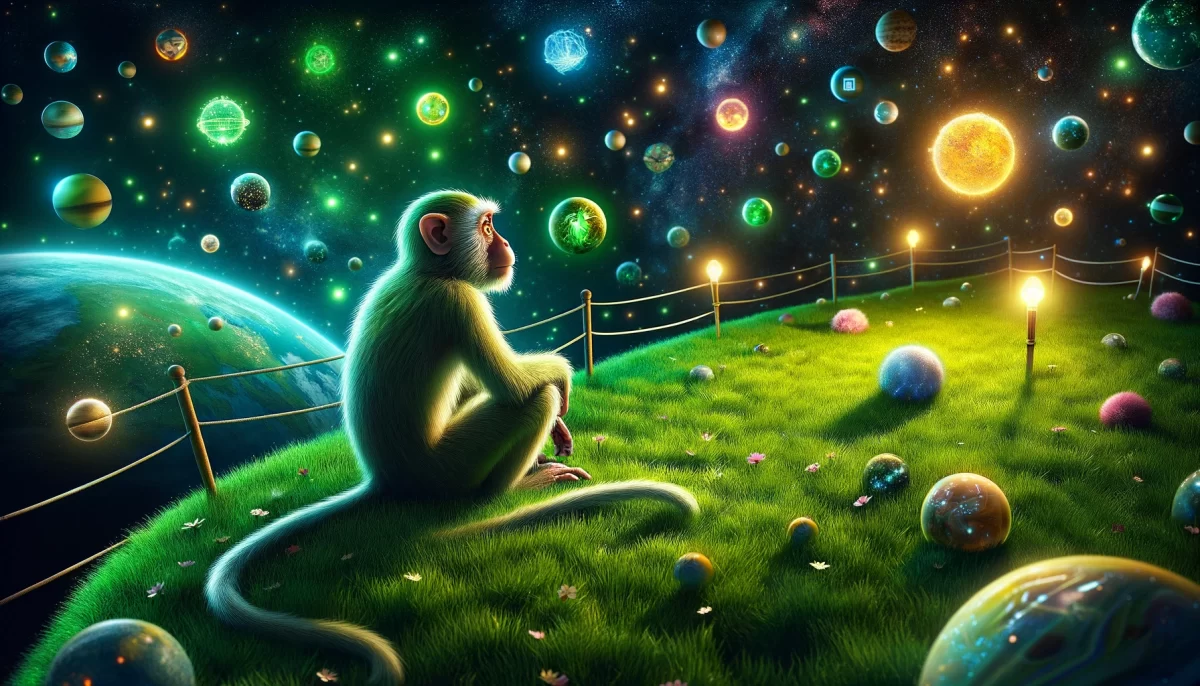
Leave a Reply